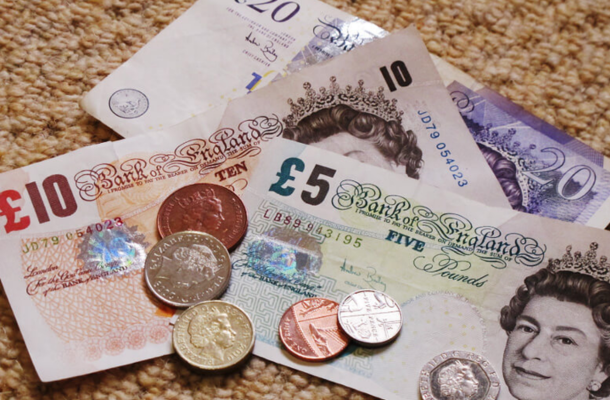
The British Pound is experiencing a fluctuating trading environment against the USD due to factors such as declining UK house prices and uncertainties surrounding wage growth.
Highlights
The GBP to USD exchange rate saw a slight decrease of 0.11% on Friday but ended the week with a stronger performance, reaching $1.27317.
According to the Adzuna UK Job Market Report, there are indications of potential shifts in wage growth trends, which may point to strains in the labor market.
The upcoming Jackson Hole Symposium has caused a division in the market, with different opinions and expectations emerging among investors.
Friday’s Overview: At the end of last week, the GBP to USD exchange rate experienced a slight decline of 0.11%, but overall showed a 0.31% increase to reach $1.27317. The GBP/USD pair initially rose to $1.27660, but later dropped to $1.26891 in response to the latest UK retail sales figures. Afternoon support helped to mitigate the losses.
UK House Prices Fall at a Sharper Pace: The UK's housing market indicated a decline as the Rightmove House Price Index dropped by 1.9% in August compared to the previous year. This trend follows a 0.2% fall in July. The increase in mortgage rates driven by Bank of England rate hikes has resulted in higher rents and inflationary pressure. These market conditions, combined with rising interest rates and falling house prices, have negatively impacted consumer sentiment, disposable incomes, and consumer spending. As a result, the outlook for the UK economy appears gloomy.
UK Jobs Market Report Reveals a Possible Shift in Wage Growth Trends: The latest Adzuna UK Job Market Report shows that advertised vacancies in the UK decreased by 1.1% in July. Despite a month-on-month decrease of 0.15% in advertised salaries, they have still seen an annual increase of 3.7%. Notably, there are now more job postings without listed salaries than those with listed salaries, a first-time record. The time to fill a job position increased slightly, suggesting a growing wage growth pressure due to a lack of skilled labor. However, compared to April 2022, the average time to fill a role has decreased. These job market statistics will provide the Bank of England with additional information to consider regarding wage growth pressure and future monetary policy decisions.
The European Session: During this afternoon's European session, there were no significant UK economic indicators to consider. Therefore, attention turned to upcoming central bank monetary policy decisions and the Jackson Hole Symposium. Although the UK economic calendar was busier in the morning, there were no scheduled speeches from Bank of England Monetary Policy Committee Members today, which means that any remarks will likely come from media sources.
Jackson Hole Symposium Uncertainty Remains a Test: The start of the week in the US economic calendar was quiet as there were no significant indicators to consider. Investors remain divided on whether the Federal Reserve will proceed with a last interest rate hike before pausing. Economic indicators leading up to the September Federal Open Market Committee (FOMC) meeting could potentially sway market sentiment. Dovish forward guidance ahead of the Jackson Hole Symposium, as well as the speech by Fed Chair Powell, could provide support for the GBP/USD pair. However, given the stronger-than-expected US economy, Powell may find it challenging to adopt a dovish stance. If the central bank's forward guidance deviates from market expectations, it could significantly impact the GBP/USD exchange rate.
GBP to USD Price Action
On the daily chart, the GBP to USD pair remained below the resistance band of $1.2785 - $1.2862. However, it moved above the 50-day Exponential Moving Average (EMA) and continued to stay above the 200-day EMA, indicating bullish near and longer-term price signals. The 14-day Relative Strength Index (RSI) reading of 47.67 suggests a bearish sentiment. A potential fall below the 50-day EMA could test the support level at $1.2650, while maintaining the pair above the 50-day EMA could bring the lower level of the resistance band and $1.28 into play.
On the 4-hourly chart, the GBP to USD pair sits below the resistance band of $1.2785 - $1.2862. However, it remains above the 50-day EMA and below the 200-day EMA, signaling a mixed near-term bullish and longer-term bearish price outlook. The 14-period 4-hour Relative Strength Index (RSI) reading of 52.53 indicates moderately bullish sentiment, with buying pressure outweighing selling pressure. Importantly, the RSI aligns with the 50-day EMA, suggesting a potential breakthrough from the 200-day EMA to target the resistance band. However, a decline below the 50-day EMA could expose the pair to levels below $1.2650.

Subscribe to our daily newsletter and get the best forex trading information and markets status updates
Trade within minutes!
Comment (0)